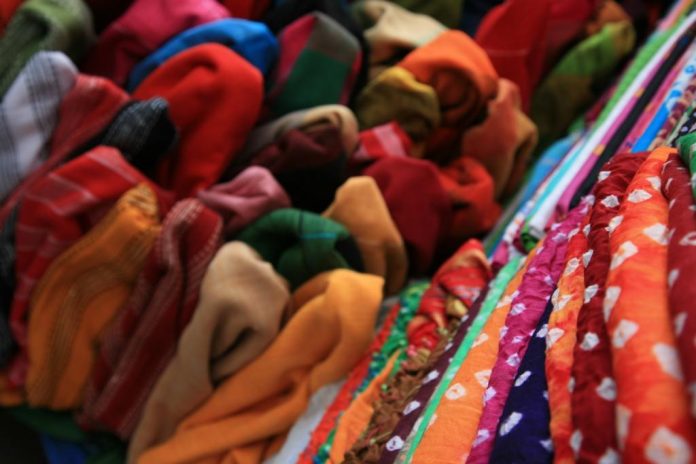Pakistan’s textile group exports increased by 9.67% during the first half (July-December) of the fiscal year 2024-25, reaching $9.084 billion compared to $8.283 billion in the same period last year, according to data from the Pakistan Bureau of Statistics (PBS).
During the first half of FY25, the value-added sector led the growth with a 17% YoY increase, while readymade garments alone posted a 22% rise compared to the same period last year. Basic textiles, however, saw a continued decline over the six-month period.
Textile exports in December 2024 saw a 5.55% year-on-year increase, reaching $1.477 billion compared to $1.399 billion in December 2023. This was the fifth consecutive month of YoY growth, reflecting strong performance in value-added segments and favorable trade conditions.
On a month-on-month basis, textile exports rose by 1.11% from $1.461 billion in November 2024.
In December, exports of readymade garments reached $357 million, recording a 20% YoY and 9% month-on-month (MoM) increase. Knitwear, bedwear, and towels also posted significant YoY growth of 7%, 13%, and 1%, respectively, contributing a combined $735 million in December.
Additionally, exports of art, silk, and synthetic textiles rose sharply, achieving a 22% YoY and 28% MoM increase, with total earnings of $38 million—the highest in two-and-a-half years for this category.
However, basic textiles continued to struggle, registering a 16% YoY and 2% MoM decline, totaling $215 million. Cotton yarn exports were the hardest hit, plummeting 34% YoY and 22% MoM to $63 million in December. This highlights ongoing challenges in the upstream textile supply chain, despite robust performance in value-added categories.
The recent growth is attributed to several factors, including higher domestic cotton production, which provided essential raw materials to the sector. Global trade dynamics also played a role, with Pakistan benefiting from a diversion of orders due to internal conflicts in Bangladesh and tariffs on Chinese textile exports. Additionally, government policies aimed at stabilizing the rupee and facilitating exports have contributed to improved performance.
Despite these gains, APTMA has raised concerns about the sector’s challenges and called for immediate government intervention. APTMA has urged the Federal Board of Revenue (FBR) to address critical issues affecting the textile sector, including restoring a level playing field for local inputs and ensuring timely, complete refunds for exporters.
In a letter to FBR Chairman Rashid Mahmood Langrial, APTMA Secretary General Shahid Sattar highlighted findings from a study by PIDE Chairman Dr. Nadeemul Haque. The study focused on the impact of withdrawing zero-rating/sales tax exemptions for local supplies, and emphasized the urgent need for policy reforms to maintain the sector’s competitiveness and contribution to the national economy.
The study warned that the current tax structure creates an imbalance between domestic and imported inputs, harming local cotton producers, spinning units, and the formal textile sector. It estimated potential economic losses of over PKR 1.7 trillion, equivalent to 2% of GDP, due to rising input costs and subsequent closures, job losses, and declining exports.
The report recommended restoring zero-rating or sales tax exemptions on local inputs for export manufacturing under the Export Facilitation Scheme (EFS). Alternatively, imposing an equal GST on imported inputs was suggested, provided the refund system is overhauled to ensure prompt and full reimbursements.
It also proposed:
- Shortening the audit/reconciliation period from five years to six months.
- Strengthening monitoring with algorithmic checks on transactions.
- Strictly enforcing eligibility criteria for tax benefits and imposing penalties for violations.
- Enhancing digitization to streamline the refund process and improve liquidity for exporters.
The study acknowledged inefficiencies in the EFS but noted that misuse, including diversion of inputs to local markets, was limited and could be curbed with targeted adjustments.
The withdrawal of zero-rating has strained the textile sector and negatively impacted the agriculture and services industries. Due to delayed refunds, exporters face cash flow challenges, undermining trust between stakeholders and tax authorities.
APTMA emphasized that stable tax policies and realistic exchange rates are crucial for sustaining exports and integrating Pakistan’s value chain into global markets.
APTMA urged the FBR to act swiftly to address these challenges, restore the viability of the textile sector, and protect millions of livelihoods dependent on the industry. “Immediate reforms are essential to prevent further damage to Pakistan’s textile sector,” Sattar stated.




